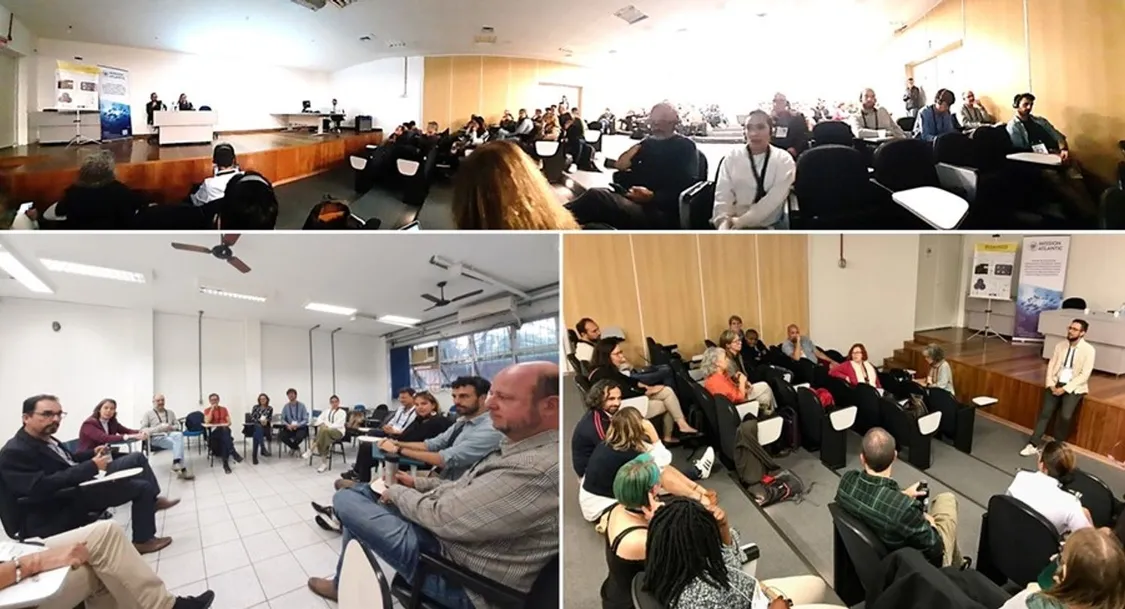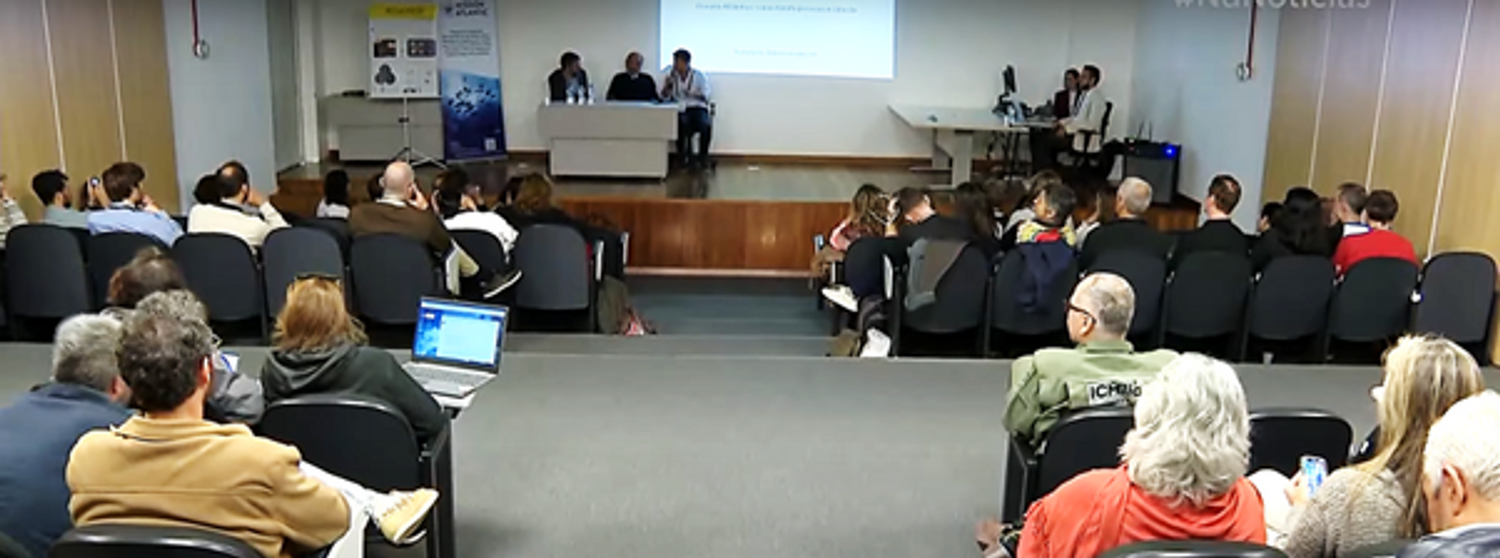By Caecilia Manago (ERINN Innovation), Mary Gasalla (USP), Gabriela Decker Sardinha (UFSC) and Ivo Grigorov (DTU)
The Joint Policy Event "Atlantic Ocean: Connecting people and science" took place on 5 October 2023 at the Universidade Federal de Santa Catarina (UFSC) in Florianopolis, Brazil. It was co-organised by AtlantECO and MISSION ATLANTIC, two HorizonEU sister projects supporting the All-Atlantic Ocean Research Alliance and the Bélem Statement.
More than 100 marine scientists engaged with representatives of Brazil's Ministries of Environment, Fisheries and Aquaculture, and Science & Technology; namely the Ministério da Ciência, Tecnologia e Inovação (MCTI), Ministério da Pesca e Aquicultura (MPA), as well as the Federal Environmental Protection Agency, Brazilian Institute of Geography and Statistcis (IBGE) and local conservation stakeholders.
The event was designed to connect public managers and multiple stakeholders interested in sustainability and management of the Atlantic Ocean. During the event, both H2020 projects were presented and topics of mutual interest were discussed, such as data sharing, assessing pressures and ecosystem services, and policymaking based on research, innovation, and technology. Plenary discussions were held as well as breakout groups, formed with diverse stakeholders in each, including researchers, policymakers and representatives of social society organisations.

Plenary Stakeholder discussion and break-out groups
The event was aimed at gaining insights into stakeholder needs to adapt the projects accordingly, as well as to direct future efforts regarding research needs in the Atlantic Ocean; specifically addressing the needs of each public sector that could be covered by AtlantECO and Mission Atlantic projects. Based on the discussions, among many findings, we highlight three topics of discussion and respective insights:
The main outputs to be taken up from the projects by stakeholders:
- From AtlantECO: Knowledge to inform new treaties and other progress in policy development on plastic pollution.
- From MISSION ATLANTIC (MA): Setting up of Integrated Ecosystem Assessments (IEAs) by MA is immediately important in terms of engagement, ecosystem-based management and marine spatial planning.
With regard to science diplomacy, two risks were identified, for which prevention and mitigation measures should be considered:
- Stakeholder fatigue
- Mindfulness in transfer of knowledge that may influence public opinion
How to achieve effective stakeholder engagement in the Brazilian context:
- It is important to know the audience. Many policymakers have scientific background and do read research papers. Therefore, it is advisable to get straight to the point of interest.
- Policy briefs need to include a clear request ahead of information on the research undertaken. This may include a request for further funding or a request for a meeting.
- In Brazil, effective channels are via direct contact, including forums, email, WhatsApp, or social media.
Check out the report in the regional television by ND Notícias about the Atlantic Science-Policy Forum for South America (in Brazilian Portuguese): https://lnkd.in/d943uxSq.
Active participation by the policymakers present enabled the insightful conversations. In this sense, we would like to express special thanks to Agnaldo Hilton dos Santos: President Fisheries Sector Union, Ana Paula Prates: Head of the Ocean and ICZM Department, Ministry of the Environment / Ocean and Coastal Management, Andrei Polejack: GOOS Brazil, Ministry of the Science and Technology / Ocean Science, Bianca Parizotto: Environmental Analist, Environment Protected Agency / State Government and Gilberto Sales: Head of the Sustainable Fisheries Department, Ministry of the Environment / Sustainable Fisheries.

From left to right: Prof. Jacques Mick (UFSC), Daniele Iudicone (SZN) and Patrizio Mariani (DTU), Gabriela Decker Sardinha (UFSC)
The Atlantic Science-Policy Forum was steered by Gabriela Decker Sardinha (UFSC), who guided the participants brilliantly through the Forum Agenda, including speeches by the Dean of Research at UFSC, Prof. Jacques Mick, and project coordinators of the sister projects, Daniele Iudicone and Patrizio Mariani. This was followed by a presentation of stakeholder questionnaire results by Vitor de Souza (UFSC) and presentations of both projects by Profs. Mary Gasalla (USP) and Andrea Freire (UFSC), and key results focusing on the South Atlantic by Tiago Gandra (UFSC), Andrea Green (UFSC) and Hugo Sarmento (UFSC).

From left to right: Tiago Gandra, Andrea Freire (Andrea Green and Hugo Sarmento seated), Vitor de Souza and Mary Gasalla
